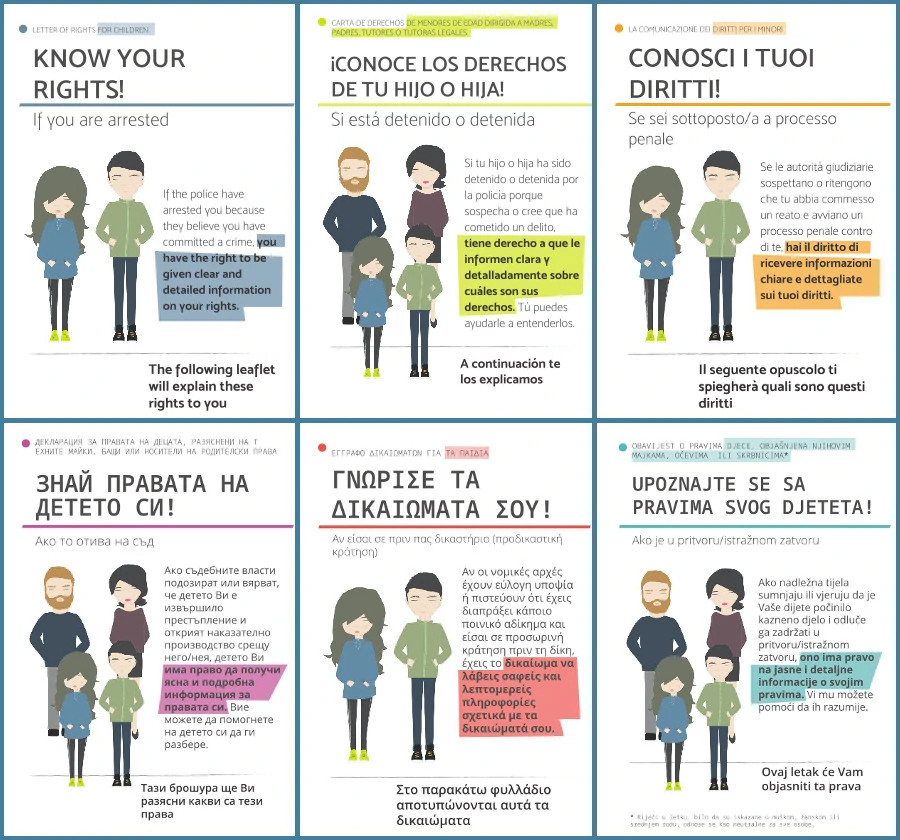The ‘Child-Friendly JT’ project has produced six leaflets – three for children, and a further three aimed at their parents or legal guardians – with information on the rights of children who are suspected or accused in criminal proceedings.
The leaflets make reference to the rights of children regarding three phases of criminal proceedings: arrest, trial and pre-trial detention.
The aim of this tool is to allow children involved in one of these phases of criminal proceedings to learn about their rights, which can help them to exercise their right to understand and participate in the proceedings.
These leaflets are an excellent communication tool:
- Written in an accessible language, which avoids excessive use of technical terminology and is adapted to the level of maturity and understanding of children.
- Available in a simple and handy format, which children, as well as their parents or legal guardians, can make use of throughout the criminal proceedings.
- Available in the 24 official languages of the European Union Member States, as well as Arabic, Chinese and Russian. This promotes the right of children to translation and interpretation in criminal proceedings and facilitates their effective participation in the process.
To download the pack of 6 different leaflets per language in a compressed file, please click on the links below:


This tool is based on the following European Directives:
- DIRECTIVE 2010/64/EU OF THE EUROPEAN PARLIAMENT AND OF THE COUNCIL of 20 October 2010 on the right to interpretation and translation in criminal proceedings.
- DIRECTIVE 2012/13/EU OF THE EUROPEAN PARLIAMENT AND OF THE COUNCIL of 22 May 2012 on the right to information in criminal proceedings.
- DIRECTIVE (EU) 2016/800 OF THE EUROPEAN PARLIAMENT AND OF THE COUNCIL of 11 May 2016 on procedural safeguards for children who are suspects or accused persons in criminal proceedings.
With these leaflets, children who become involved with the justice system will be able to receive information about their rights through these leaflets even in cases where they do not speak the language of the country they are in.
The purpose of the leaflets aimed at parents or legal guardians is to facilitate the right of children in conflict with the law to have their parents or legal guardian informed of the situation they are in.
In this way, parents or legal guardians will be able to help their children better understand the criminal proceedings, as well as encourage their active participation in them.
Additionally, staff working in European juvenile justice systems will have access to a tool that can be used to promote the rights of children.
 webmail
webmail Portal personal
Portal personal